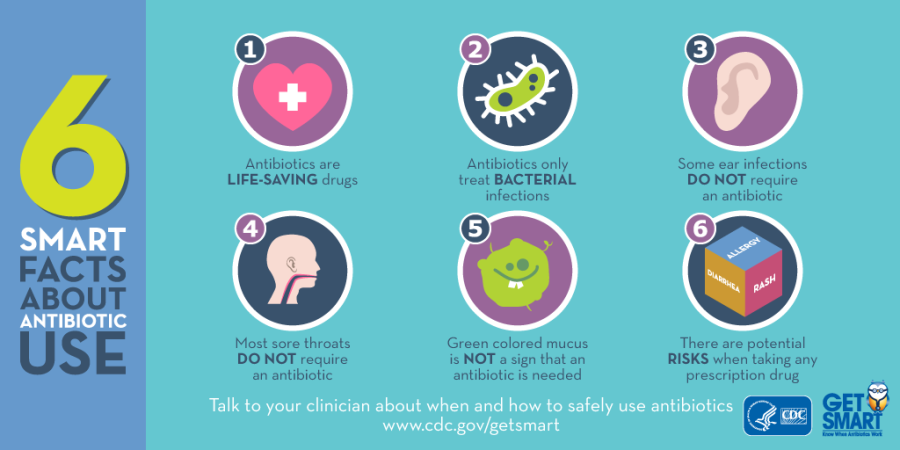From the Haywood Regional Medical Center:
Sniffle or Sneeze? No Antibiotics Please.
(Clyde, N.C.) — “Get Smart about Antibiotic Week”, an annual one-week observance starting on Monday, November 14, raises awareness of the threat of antibiotic resistance and the importance of improving antibiotic use. Haywood Regional Medical Center (HRMC) wants to make sure you understand the proper use of antibiotics for this flu season.
“It’s very easy for anyone to get a cold and say, ‘I need a Z-Pak’, trying to get some immediate relief, but really that is not what will help you,” says Tracey Truesdale, Pharmacy Manager at HRM. “In the long run, you’re actually building up unnecessary resistance to antibiotics that you may really need for a more serious bacterial infection.”
Antibiotics kill bacteria, not viruses. Colds, flu and most sore throats are caused by viruses. According to the CDC, “10 percent of adults with a sore throat have strep throat actually requiring antibiotics.” The problem is, taking antibiotics when they are not needed can do more harm than good. Widespread inappropriate use of antibiotics is fueling an increase in drug-resistant bacteria. Antibiotic resistance is one of the world’s most pressing public health problems, says the CDC. Americans of all ages can lower this risk by talking to their doctors and using antibiotics appropriately during this cold and flu season.
What to do for colds and flu:
Children and adults with viral infections recover when the illness has run its course. Colds causes by viruses may last for two weeks or longer.
Measures that can help a person with a cold or flu feel better:
- Increase fluid intake
- Use a cool mist vaporizer or saline nasal spray to relieve congestion
- Soothe throat with ice chips, sore throat spray or lozenges (for older children and adults)
Patients should keep their doctor informed if their illness gets worse or lasts a long time. Viral infections can sometimes lead to bacterial infections, which would require more treatment.
Haywood Regional Medical Center has started an antimicrobial stewardship committee to ensure the proper use of antibiotic at the correct dose, time and need. HRMC also has a lab test available that helps prescribers distinguish between a viral infection and a bacterial infection.
If you have questions about medications or antibiotic use, contact your primary care physician. If you need a primary care provider, call our Physician Referral Line at (800) 424-DOCS (3627) or visit http://myhaywoodregional.com/FindaDoc.




Before you comment
The comments section is here to provide a platform for civil dialogue on the issues we face together as a local community. Xpress is committed to offering this platform for all voices, but when the tone of the discussion gets nasty or strays off topic, we believe many people choose not to participate. Xpress editors are determined to moderate comments to ensure a constructive interchange is maintained. All comments judged not to be in keeping with the spirit of civil discourse will be removed and repeat violators will be banned. See here for our terms of service. Thank you for being part of this effort to promote respectful discussion.